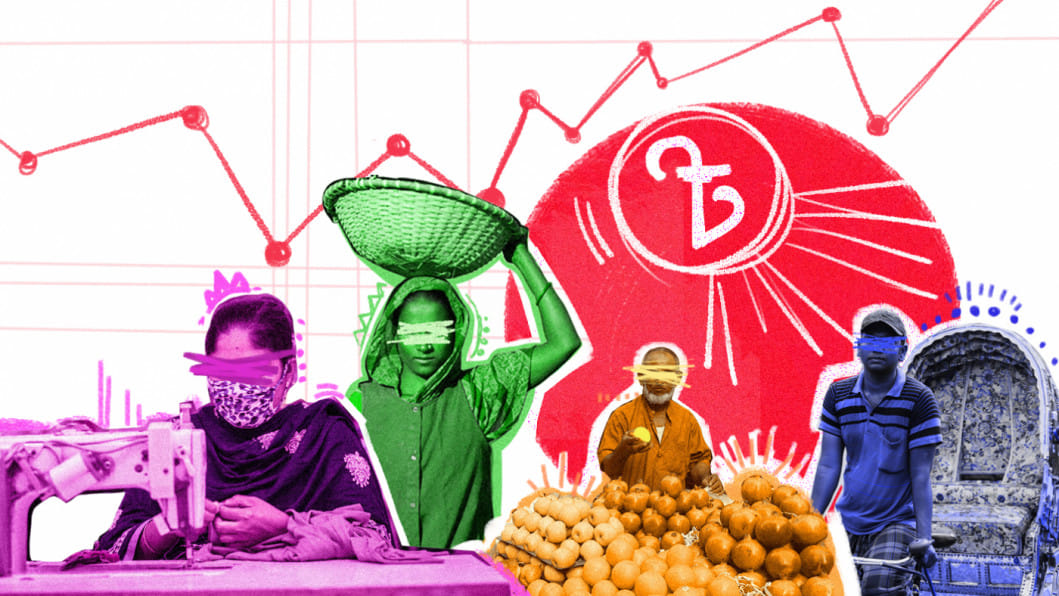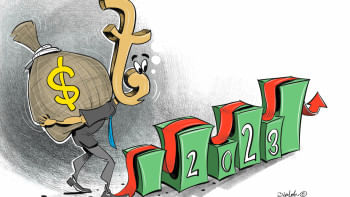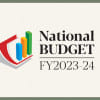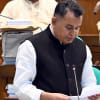‘Will the budget be made to satisfy the people or the vested groups?’

During the last budgetary preparations, it was understood that it had to be a budget that addressed certain economic crises. What type of a budget does the upcoming one have to be?
Last year's budget was mostly related to the post-Covid crisis. This year, the nature of the crisis is very different, particularly given the volatility of the macroeconomic indicators that has added a whole new dimension to the crisis. Compared to last year, budget makers are having to design the budget from a much more vulnerable and weakened position.
In addressing the crisis, the government appears to have adopted an extreme short-termism mindset. Policymakers saw reserves falling at the beginning of the year. In the backdrop of the Sri Lankan crisis, it consumed their entire attention. So, they made protecting the reserves their single-minded economic objective. They did this by virtually collapsing imports, and thereby brought one form of stability, but in the process essentially collapsed the growth process. Many growth indicators show this. For example, there has been a drastic fall in letter-of-credit (LC) openings. This growth process may have been protected if exports and remittances maintained some robustness, which they didn't.
You need imports even for exports – capital machinery imports and intermediary products that are required to produce export materials. So, the extreme short-termism mindset of protecting reserves has led to a total collapse in the growth process, which in turn has made revenue generation very uncertain.
So, I see two types of crises. One is the crisis for the people – for example, the cost of living crisis which is getting more and more dire by the day. But the other one is the crisis for the policymakers, because they are having to make the budget in a very uncertain resource availability scenario. For them, resource availability is a significant concern. But instead of any transparency on these realities, budget makers are indulging in make-belief targets such as the seven-plus percent growth target, which has little bearing with current economic fundamentals.
Since the economy is facing extreme challenges in terms of growth, resource availability and expenditure efficiency, the triangle of these processes need to be transparent. So, my biggest expectation from this budget would be transparency, because I see a massive absence of transparency both in terms of target setting and actual resource availability situation in which the planning is done. The need for transparency is not just a governance goal. It has become an economic necessity.
This has become critical for the economy, for meeting the IMF's conditions and for business-people, and also for the common people who are having to adjust their daily lives.
After seeing last year's budget, you said addressing inequality doesn't seem to be a big priority for the government. At a recent dialogue organised by Citizen's Platform for SDGS, speakers said that the government should adjust economic reforms, required as per the IMF loan conditions, in a way that reins in inequality. What does the government need to do differently with the upcoming budget?
The problem here is with the mindset. If you look at the conversations of the policymakers, they are not seeing inequality as a problem. So, I have to repeat here what I said last year on this issue. Now all the ruling party members, and even the district-level ones, have become experts in the "Kuznets curve," which correlates growth and inequality trends and seems to suggest that in the initial stages of growth, inequality rises. Policymakers and the ruling group are essentially buying into the idea of and propagating the inevitability of inequality. However, if you look at the global experiences, the story is so much more complex and varies between country contexts.
What is driving inequality in Bangladesh? Is it only a matter of inadequate social protection allocations in the budget? This certainly is a factor, but an equally compelling inequality driver is the specific nature of the growth strategy pursued over the preceding decade. This has seen the growth process becoming increasingly unfriendly to both employment and poverty reduction. When the PPRC and BIGD survey first cautioned about an emerging problem of the "new poor" in 2021, official circles refused to accept the issue. Now the government think tank is bringing forth the gravity of the same problem. The recently published Household Income and Expenditure Survey (HIES), 2022 is signalling both a decline in industrial and urban employment and a rise towards extreme income inequality – the top five percent's share of income is now 27.82 percent. So, the sources of inequality have to become a part of the discussion.
Some of the IMF conditions – raising power tariff, for example – could make life harder for the common people. But if we look at the main sources of the inequality, we will see that the nature of our growth strategy is such that we are essentially lavishing resources and also policy attention to a small minority at the top, and the millions of economic actors in the middle and below are not getting the policy support and resources they need. So, we need to really open up the discussion on the specifics of the growth strategy embraced by the current policymakers. Strikingly enough, when LDC graduation is being touted as around the corner, we are fixated on "cheap labour" as our main growth strategy selling point.
Secondly, there needs to be a reorientation of public expenditure. Public expenditure efficiency itself is a way to address inequality. Take the healthcare sector for example. Funds are being spent in the sector, but in terms of its actual impact on healthcare, there is a huge gap. These things also lead to increased inequality.
Thirdly, when it comes to resource allocation, there needs to be intra-group equity. The government has recently brought up the issue of increasing benefits for government employees. During a crisis, other countries come in support of their citizens. Here, we see the opposite happening, with daily costs such as transport fares, etc rising for the people, while the government remains preoccupied in its concerns with other groups.
What is driving inequality in Bangladesh? Is it only a matter of inadequate social protection allocations in the budget? This certainly is a factor, but an equally compelling inequality driver is the specific nature of the growth strategy pursued over the preceding decade. This has seen the growth process becoming increasingly unfriendly to both employment and poverty reduction. When the PPRC and BIGD survey first cautioned about an emerging problem of the "new poor" in 2021, official circles refused to accept the issue. Now the government think tank is bringing forth the gravity of the same problem.
At the same programme, the planning minister admitted that the poor are being deprived due to "procedural reasons" and government allocations don't always reach them. Is there any way to improve the government's procedure to ensure the allocation reaches them?
"Procedural reasons" is basically a fancy term for corruption and decision inactions. If we take the education sector for an example, and look at the learning loss that happened during Covid, there needs to be a big budgetary support to make up for this loss. Primary healthcare requires a much bigger attention from this budget, particularly for urban areas. Transport costs, which is a very important part of daily life for people, is hostage to entrenched vested groups. By reducing corruption, leakages and the hold of inefficient vested groups, these costs can be brought down and the shortage of investment can be somewhat made up, and the quality of investment can also be improved.
There has been a lot of talk about bringing in some tax reforms. What changes should the government make to improve its poor tax-GDP ratio, while also reducing inequality?
Improving the tax-GDP ratio while reducing inequality is a laudable goal. There may be minor steps such as raising the personal income tax threshold. But the most important aspect of tax reform is that the political government is not able to stand up to the bureaucratic implementers. Their bureaucratic hold through the procedural complexity that the planning minister mentioned is the bigger problem.
When I speak to people, I hear them say all the time that they want to pay tax. But the bureaucratic mindset which, for example, allows the National Board of Revenue (NBR) to pass statutory regulatory orders (SRO) even after the budget is passed, to issue new orders that completely counteract the nice things mentioned in the budget, complicates things. So, when it comes to the issue of tax reforms, the political government is basically not able to really get rid of the bureaucrats' lethargy and inertia and lack of transparency. The bureaucrats essentially want to retain a capacity to rewrite rules at every point of time, and worse, not provide decisive actions where they are needed. The government has been touting 100 economic zones as a centrepiece of its growth strategy. Some have been set up, but how many of those have taken off? I was speaking to an entrepreneur on this the other day, who expressed their extreme frustration at not getting approval and process "decisions" where urgently needed. So even though these zones have been pushed by the government, we now see some of them going into the cold freezer.
Arrested growth momentum, and the lack of employment creation due to it, itself is the big barrier to reducing inequality. Occupying the policy chair without providing the needed decisions and policy support completely demoralises the entrepreneur spirit. If this can be addressed, it will go a long way in addressing the inequality issue.
What you said is interesting, because the planning minister also mentioned that many vested groups have gotten themselves in an advantageous position for a long time, and taking action against them might put the government in trouble. Ultimately, who should the government look to please with its budgetary policies – ordinary people or vested groups, keeping in mind the upcoming election?
I give credit to the planning minister for his honest statement. The thing is, these vested groups are within the bureaucracy, within the political decision-making process, and even within the private sector. These vested groups always promote narrow, self-serving policy positions. Just look at how the banks and financial sector are being run.
Now the question is: will the budget be made to satisfy the people or the vested groups? There are intelligent ways the government can benefit the people, without allowing the vested groups to cause problems. An election year is the perfect time to show political courage. To show people that political leaders have the courage to bring people on board in their mission to fulfil all the big development visions that they constantly talk about. So, political economy may be a bigger challenge for the budget than narrowly understood economics.

 For all latest news, follow The Daily Star's Google News channel.
For all latest news, follow The Daily Star's Google News channel. 











Comments